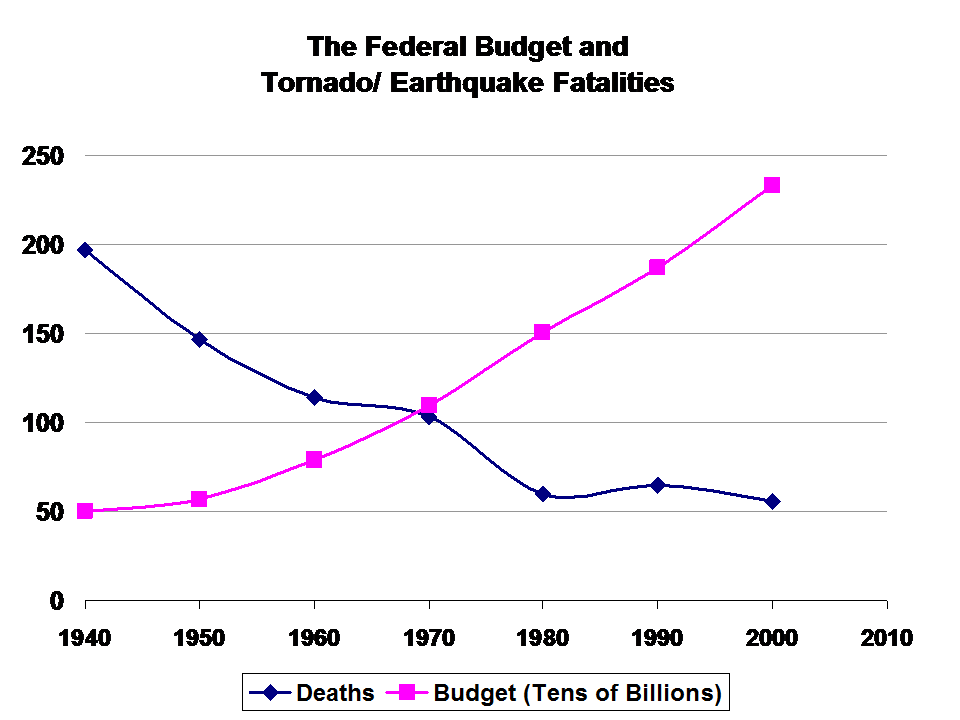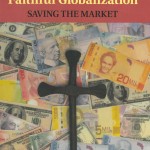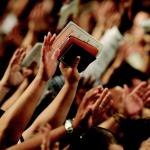In recent weeks, I have written about my discomfort with people aligning religion with a particular party and the costs that it might impose. Today I examine what I view as an unhelpful instance of a bringing religion into a political debate. I use this not to critique the candidate who said it, but rather to examine its underlying logic.
In August, Republican candidate Michele Bachmann told an audience in Florida that God had sent deadly tornadoes and earthquakes in recent weeks to indicate his displeasure with the high levels of federal spending. She said:
“I don’t know how much God has to do to get the attention of the politicians. We’ve had an earthquake; we’ve had a hurricane. He said, ‘Are you going to start listening to me here?’ Listen to the American people, because the American people are roaring right now. They know government is on a morbid obesity diet, and we’ve got to rein in the spending.”
(Bachmann later claimed that she was joking, but having listened to her statement a couple of times, I’m not so sure.)
Whereas most religion-politics linkages take the form of “we’re on God’s side”, this takes it one step further and says “God is on our side.”
I’m quite comfortable with the idea of God communicating directly with people, but as I understand scripture (and that’s a big caveat), I would expect God to tell people to do things like love our enemies, take care of the sick and poor, and live a holy, devout life and other common themes from the New Testament.
But what if if God does send tornadoes and earthquakes to protest high levels of federal spending? This doesn’t sound right, but then again, God sometimes does things without checking with me first.
To understand what God thinks about federal spending, I looked up the number of tornado– and earthquake-related deaths since 1940. I used the number of deaths because they are a reasonable measure of the seriousness of a tornado and hurricane. I also looked up the corresponding federal budget, in 2005 dollars to adjust for inflation.
The figure below presents the data by decade, and as shown, the number of deaths due to tornadoes and hurricanes has dropped steadily. In the 1940s, an average of about 200 people died each year from these natural disasters. By the 1970s, the average was just over 100 people a year, and in the last decade it was just over 50.
During the same period, the federal budget steadily grew. In the 1940s, the Government spent an average of 500 billion dollars a year (in 2005 FY dollars). By the 1970s, this had increased to 1,100 billion, and in the last decade it was almost 2,300 billion a year.
There is a strong, inverse relationship between tornado and earthquake deaths and federal spending. The more the government spends, the fewer people are killed in tornadoes and earthquakes.
Now, I would interpret this relationship as reflecting people responding more effectively to natural disasters. Government regulations result in safer housing; weather forecasting gives increased response time; medical technology gives better treatment to the injured; and so on. All of these are supported, in part, by federal spending.
(This drop in natural disaster fatalities is yet another way that the world is getting better—a topic I examine in depth in my recent book Upside: Surprising Good News about the State of the World.)
Are we to assume from this empirical relationship that God wants more Federal spending, not less? While federal spending has increased four-fold in the last 60 years, deaths from tornadoes and earthquakes have dropped three-fold. God must be very, very pleased with all this federal spending.
The moral of this story: Simple-minded insertions of religion into politics often don’t work out too well.

















